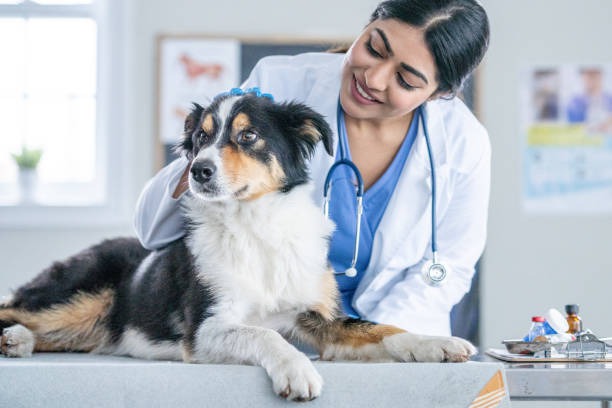Finding the right pet surgeon can feel daunting, especially when your furry friend needs specialized care. But worry not—this article will guide you through what to consider, making the process much smoother and less stressful. Let’s look into the key factors that will help you make an informed decision.
1. Understanding Your Pet’s Surgical Needs
Before you start your search, it’s essential to understand your pet’s specific needs. Different surgeries require different skill sets. Is it a routine procedure, or does it involve complex orthopedic or neurological aspects? Knowing the type of surgery will help you narrow down the most suitable options.
Consulting with Your Veterinarian
Your primary veterinarian is a great resource and should be your first point of consultation. Based on their knowledge of your pet’s medical history, they can offer valuable insights and recommendations. Discussing the nature of the surgery and possible specialists will set a solid foundation for your search.
2. Research and Recommendations
Gathering recommendations and researching are crucial steps in your search for a pet surgeon. Here’s what you can do:
-
Ask friends and family for their experiences with local pet surgeons.
-
Check online reviews and testimonials for nearby clinics.
-
Join online pet forums or social media groups for personal stories and advice.
Looking for Accreditation
Accreditation by reputable veterinary associations is an excellent indicator of a surgeon’s expertise. This credential assures that the surgeon has met high standards in veterinary medicine.
3. Evaluating Experience and Expertise
A pet surgeon’s experience can significantly impact the success of your pet’s surgery. Here’s how to evaluate a surgeon’s experience:
Years in Practice
While newer surgeons might offer fresh perspectives, experienced surgeons often bring tried-and-tested techniques to the table. Consider surgeons who have been practicing for several years in the specific type of surgery your pet needs.
Specialty Certifications
Some pet surgeons go beyond general practice to seek additional certifications. These credentials can be a testament to their dedication and expertise in certain procedures.
4. Facilities and Technology
Modern facilities equipped with the latest technology can offer advanced treatment options and better outcomes. When visiting or researching a clinic, take note of the following:
-
The quality and upkeep of the facility.
-
Availability of advanced diagnostic and surgical equipment.
-
Post-operative care facilities, including a comfortable recovery area for pets.
5. Location and Accessibility
Consider the location of the surgeon’s clinic. Is it conveniently located, or would it require a long journey? Proximity can be crucial, especially in emergencies. Search for an “animal hospital near me” to find easily accessible options.
6. Cost and Payment Options
Surgical procedures can be costly, so it’s important to understand the financial aspects beforehand. Here’s what to evaluate:
Requesting an Estimate
Request a detailed estimate for the surgery, including pre-operative and post-operative care costs. This transparency will help you budget effectively.
Payment Plans
Check if the clinic offers payment plans or if they accept pet insurance. These options can make expensive procedures more manageable.
7. Understanding Your Responsibilities
Being a pet owner entails responsibilities that extend beyond choosing the right surgeon. Here’s how you can ensure the best care for your pet:
Pre-operative Preparations
Follow all guidelines provided by the vet for pre-surgery preparations. This might include dietary restrictions or health checks.
Post-operative Care
Adhering to recovery plans after surgery is crucial. To facilitate a smooth recovery, ensure you understand all instructions, from medication schedules to activity restrictions.
8. Building a Relationship with the Surgeon
Feeling comfortable with your pet’s surgeon is essential. Building a rapport can lead to better communication and trust. Don’t hesitate to ask questions or express concerns; a good surgeon will welcome and address them.
Follow-up Appointments
Regular follow-up appointments are vital for monitoring recovery. Choose a surgeon who emphasizes continuous care and regular check-ups.
9. Emergency Preparedness
It’s always wise to be prepared for emergencies. Know the emergency protocols and have contact information readily available. Consider searching for a veterinary emergency clinic that can assist outside regular office hours.
10. Your Decision Matters
Trust your instincts when making the final decision. Ensure you feel confident in your choice, as it can tremendously affect your pet’s health and happiness. If proximity is important to you, look for a pet surgeon in Halifax or similar local specialists.
11. Checking for Communication Skills
Clear communication with your pet’s surgeon is essential for understanding the procedure and care your pet will receive. Here’s what to look for:
-
Open Dialogue: Ensure the surgeon is willing to discuss all aspects of the surgery and address your questions thoroughly.
-
Patient Explanations: A good surgeon will explain medical terms in understandable language, ensuring you’re fully informed about your pet’s condition and treatment.
-
Availability: Consider how easy it is to reach the surgeon or clinic staff. Timely communication can make a significant difference in how smoothly the process goes.
Final Thoughts
Choosing the right pet surgeon is a crucial decision that requires time and thoughtful consideration. By following these guidelines, you’re well on your way to finding the best care for your beloved pet. Remember, a good decision today will lead to happier tomorrows with your furry friend.




